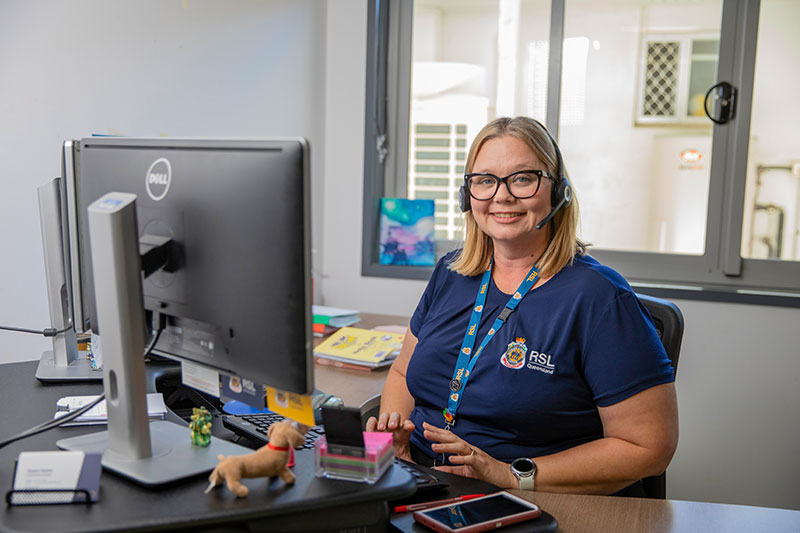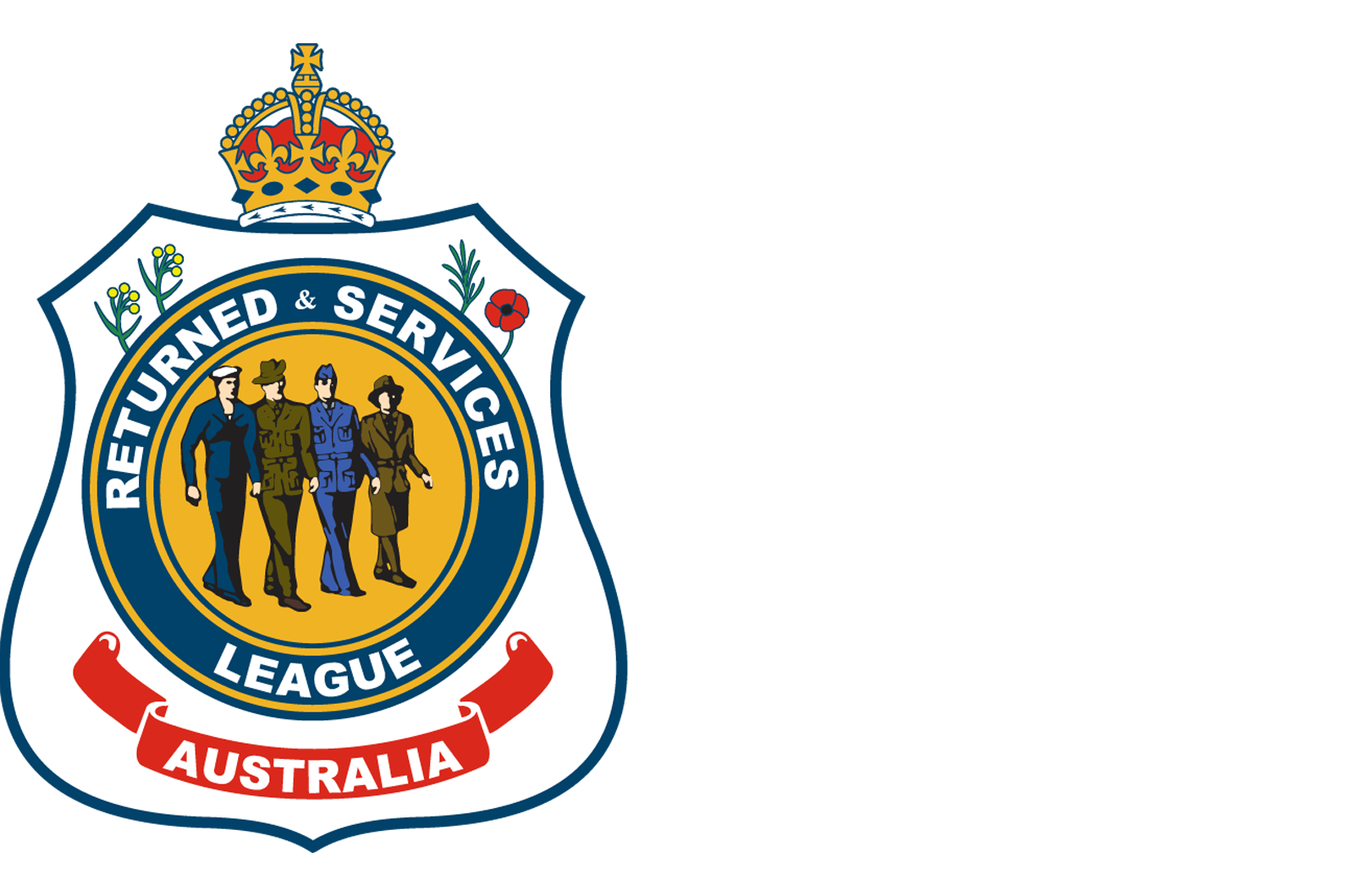21 October 2024
Chanara Hawkes uncovers the qualities of a compensation advocate
Originally from Mount Isa in northwest Queensland, Chanara moved to Bundaberg in 2019 in the hopes to pursue a new career.
“I have a long history of working in the mental health and crisis support space – about eight or nine years actually, but I was ready for a change,” Chanara explains.
“Even though I wanted to try something different, I still wanted to do something that supported people. That’s when I saw this job for a compensation advocate with RSL Queensland pop up and thought to throw my hat in the ring.”
A compensation advocate assists veterans identify and submit claims to the Department of Veterans’ Affairs (DVA) around conditions that they may have received during or after their service, and help them potentially receive some compensation for those claims.
“The DVA process, at times, can be a little overwhelming, and that’s where we step in. We set up interviews, help them navigate the legislation and identify conditions they might not have thought they could claim and get compensation for,” Chanara says.
“As an advocate, you’ve got to have a deep understanding of the complex process, which requires training through the Advocacy Training and Development Program.
“It can take up to 18 months to be a fully qualified level two advocate, but I’m hoping to become a level one advocate in a few more months.
“While the training has been extensive, I’ve had incredible support from my team leader Natalie Drake, who is just a wealth of knowledge, as well as the entire Central Queensland team – everyone has been so supportive throughout this process.”
Uncovering the best outcome for a veteran
Team leader Natalie has been with RSL Queensland for three years and is passionate about supporting and training advocates in her area. Currently, Natalie looks after advocacy and compensation advocates across Hervey Bay, Bundaberg and Rockhampton.
“The role of a compensation advocate is multilayered but incredibly rewarding,” Natalie says.
“No two veterans have had the same service experience which can make the interviews go in many different directions, and uncovering their story and potential conditions can be emotional and challenging for the client, but just being there to support our clients through a complicated process can positively affect their life.
“I want to make sure that all new advocates, especially those in regional areas, feel supported by other advocates and the RSL Queensland service delivery team, and get that exposure to these kinds of conversations during their training because that is how we learn on the job.”
As a compensation advocate deals with highly personal information, Natalie says having empathy and emotional intelligence is crucial to build rapport with the client and achieve the best outcome.
“I think the biggest thing for an advocate is to have empathy and not hold any judgement of the person sitting in front of you, so you can build that trust between you both,” she explains.
“Being able to make them feel safe is also a big one, because the more that you can do that, the more you get out of that relationship and, in turn, uncover the best possible outcome of compensation.
“That empathy, trust and support is essential, but also to have that ability to take a holistic approach when assisting a veteran is important. Being able to take it a step further and ask: ‘what else can we do?’, ‘how else can we help you?’.”
Chanara agrees and adds that a willingness to learn is another quality of a great advocate.
“I think an advocate has to be a caring person, but also someone who wants to learn because the claim process and legislation that we work with is intricate, so you really do learn something new every day,” Chanara says.
“Somebody who has a desire to learn and support others would be perfect for a compensation advocate.”
“Ultimately you need to be doing it for the right reasons, you need to really care and want to make a difference because you can change people’s lives. And I don’t think you get the opportunity to do that in many other jobs,” Natalie adds.
“While it can be challenging at times, the reward of hearing comments like ‘you’ve changed my life’, ‘I am so glad I met you’ and ‘you’ve helped me so much’ make it all worthwhile.”


